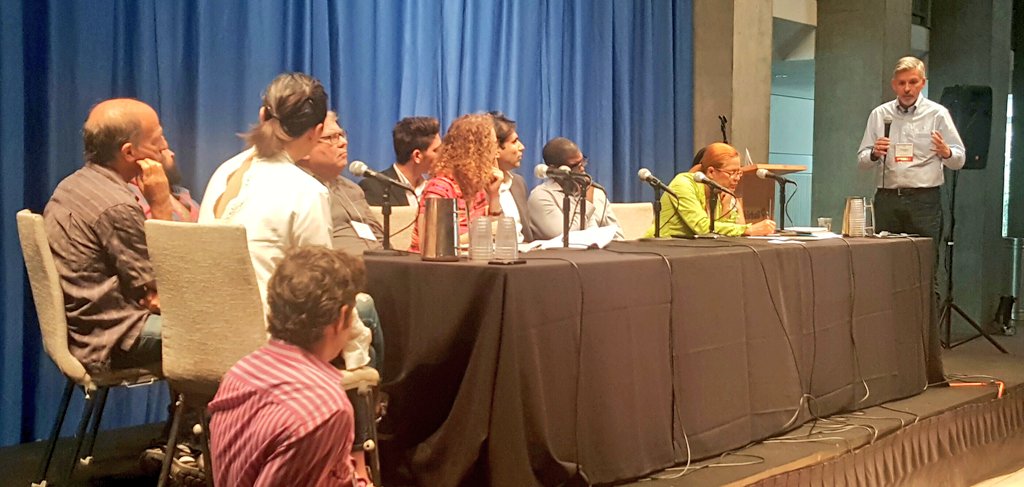Expert DOjO’s Head Honcho Brian Mac Mahon invited Ryan Foland and me to speak for a full morning session at the Digital Hollywood Conference in Los Angeles last week. What an amazing event! Brian provided the kind of insights that only someone whose lived in 30 countries and has consulted and started companies the world over can provide. Ryan, a gifted presenter in his own right, delivered a masterclass in communication for entrepreneurs. I reinforced the value of coming together for conferences and the need for extending that experience through participation in peer advisory/mastermind groups. During the final 45 minutes, we actually set up a spontaneous mastermind group comprised initially of about 10 volunteers, and soon after we got underway, everyone joined in the experience.
As I reflect on the 2 1/2 hours we spent with this impressive group of entrepreneurs, it’s apparent that the most powerful moments of the entire session were found not in the answers that were given, but in the questions that were raised. Answers tend to guide us to a conclusion, while questions promote additional learning and further discovery. The audience asked Brian some very pointed questions – questions which often got to the heart of what was burning inside everyone in the room.
Ryan offered a version of the $64,000 question back to the audience when he asked them to identify the problems their companies are trying to solve. Not “What do they do?” or “How do they do it? Ryan asks the bigger question because until you know “precisely” what problem you’re trying to solve, you’re going to have a difficult time communicating the relevance of what you do and surviving as a company. Ryan’s 3-1-3 pitch coaching model, which helps you get to the heart of that very question, should be part of every entrepreneur’s toolkit.
As for my role, after setting the stage for the value of mastermind groups and why they work so well, we invited people to come up on stage and give it a try – to participate in a real-time experience where one of the members would ask the group for assistance in addressing her most pressing challenge. This is where the rubber meets the road when it comes to asking the right question. By taking a few moments to assist the member with crafting the question as accurately as we could determine in that moment, it prevents the group (most of the time) from eventually giving the member some great ideas that turn out to have no real utility – which wouldn’t be much help at all. After helping the member frame the question, it was time for the group members to start asking questions of their own in an effort to gain a greater understanding of the situation. Here, we established just three rules for asking questions of the member seeking assistance:
- Ask open-ended questions (ones that cannot be answered yes or no).
- Do not ask “why” questions (in trying to create a safe environment for sharing, “why” questions can tend to put a group member needlessly on the defensive).
- Do not frame a question as a question-mendation (meaning ask questions that improve your understanding what’s going on, not “Have you considered trying x, y, z?”).
Everyone jumped right in and followed my three rules to the letter. Best of all, the richness of the exchange, along with the ideas that came from the participants after the initial question session was completed, demonstrated to everyone that even in 45 minutes, among a group of people many of whom only met that morning, they could deliver and receive real value.
I’d like to think that on the way out of the room, the audience members were asking themselves this question: How is it that I’m not in a mastermind group of my own? Let’s hope so.

